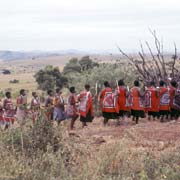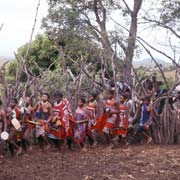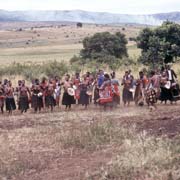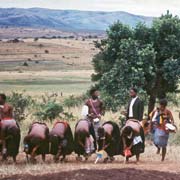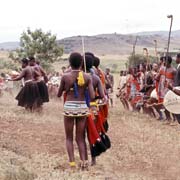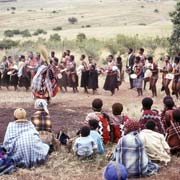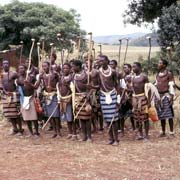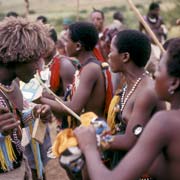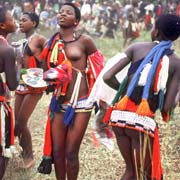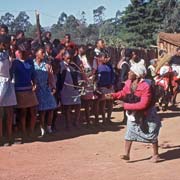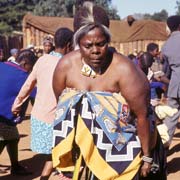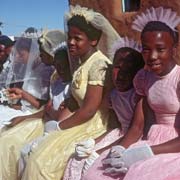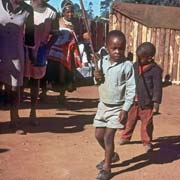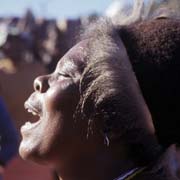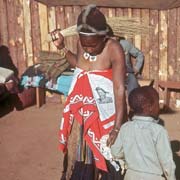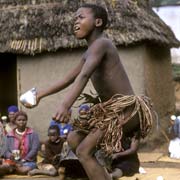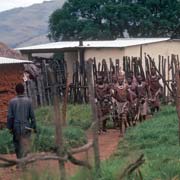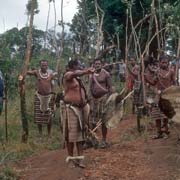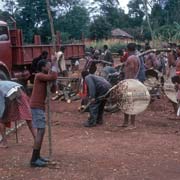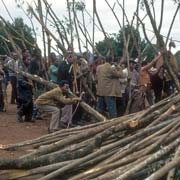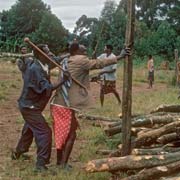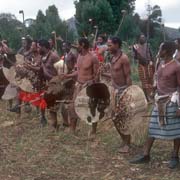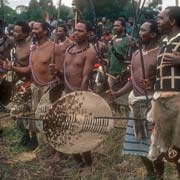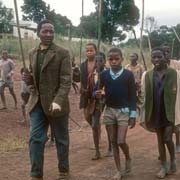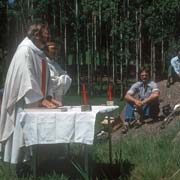Photos of Swazi Celebrations, Swaziland
Swazi Celebrations
Swazi people cherish their traditions and it is quite common to come across celebrations where large groups of people in full traditional costume participate.
you may then send it as a postcard if you wish.
The traditional Swazi wedding of Prince Mfanasibili, one of the sons of King Sobhuza II, was held at Luve, to the north west of Manzini. There was dancing by large groups of married women, recognisable with their "sicolo" beehive hairstyle, all in "sidvwaba" skin skirts, who were joined by the new bride. Young unmarried girls danced, bare breasted, in their short "indlamu" bead skirts, carrying small shields and the young men, carrying large cowhide shields and "sakila" or knobkerrie fighting sticks marched, singing old warrior songs, surging forward, joining the girls; individual men would lope towards a particular girl who was dancing especially well and slam their shield on the ground in front of her, as an appreciation.
Not all weddings are as traditional as the one for royalty; in Mangwaneni village, just outside Mbabane, was a wedding where the bride and groom were dressed in European wedding gown and suit but which still featured lots of traditional dancing and singing, especially by women and girls, a curious mixture of two cultures. And a complete open-air wedding of a young American couple, who worked as Peace Corps Volunteers in Swaziland, took place in the hills above Mbabane.
Mangwaneni is actually a small Royal village where one of the King's daughters lives; and when work needs to be done everyone comes to help. On this occasion a "sibaya" or cattle byre had to be built and a large group of men, in their traditional Swazi "emabutfo" regiments came to bring the materials for this. There was lots of singing and dancing the old warriors songs, like the "iNqaba kaNqofula", a praise song for the King. The regiments marched, preceded by a man blowing a horn, and even groups of young boys, carrying fighting sticks, were marching and singing in the old way.



